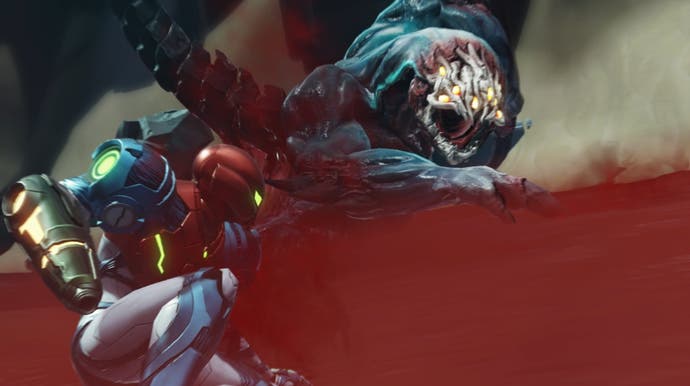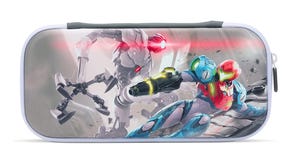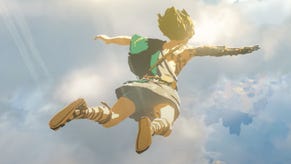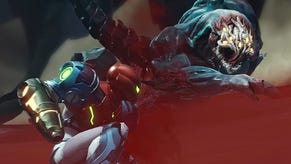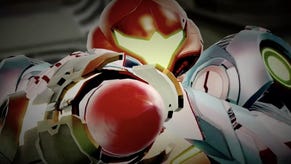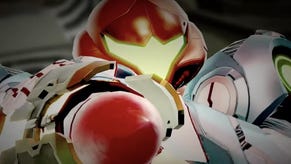I've worked out what Metroid Dread's bosses are for
(For me at least.)
Hemingway had some excellent advice for where to break off for the day when you're working on a long piece of writing. Maybe it works for more than just writing. I think Hemingway used the analogy of drilling or mining - of course he did.
Anyway, the advice goes like this: if you're breaking for the day, don't break just before you have to write something difficult. Break before you have to write something easy. The easiness of what you have to write will bring you back in the next day and let you get properly on your way.
This is great advice. I use it myself! And it's unsurprising, I guess, that I've been thinking about it while playing Metroid Dread over the last few days. Metroidvanias are wonderful games - they offer you complex worlds to explore, and they make sure that the ways you explore them are constantly evolving as you collect new gadgets and also, crucially, as you come to understand things more. The best Metroidvanias always leave you with a few possibilities to think about at any moment - a few possibilities scattered across the emerging map. A great element of the tension of these games, for me at least, comes from this feeling: I really had better not forget that thing I just saw but don't have time to follow-up on right now.
But there's a problem with all this. For me at least. Metroidvanias are quite intense games to play - they require your total attention. Inevitably, I need to play them over the course of a few months, with breaks now and then. But those danging threads! Those scattered things that I told myself to remember! What then? Put something like Hollow Knight down for a week and it's very tricky to pick up again, because what you have to remember is not just how the dash works, but all of those interesting potential leads you were carrying in your mind, all of them flung across a complex landscape. Picking up Hollow Knight after a month away would be like trying to restart a half-finished doodle, an artform that these types of games often resemble. You know, a single unbroken line taken on an extravagant journey.
Different games get around this in different ways. Shadow Complex, which I love, despite the storyline, just gives in and offers you a path to follow. It's helpful - this is one of the only Metroidvanias I have ever 100 percented - but it feels like an admission of failure. Others just urge you not to stop playing: there is a kind of cumulative oppressive gloom to Super Metroid that powers me through to the end each time, because I have to be shot of this horrible, looming world.
What about Metroid Dread though? I'm playing it and loving it, but I know - I always know with a Metroidvania - that at some point before the end I am going to need a break. And yet! Something has occurred to me this time and I think it might help. A kind of inversion of Hemingway's writing advice. This time, when I am stepping away for a bit, I will be stopping each time before a boss.
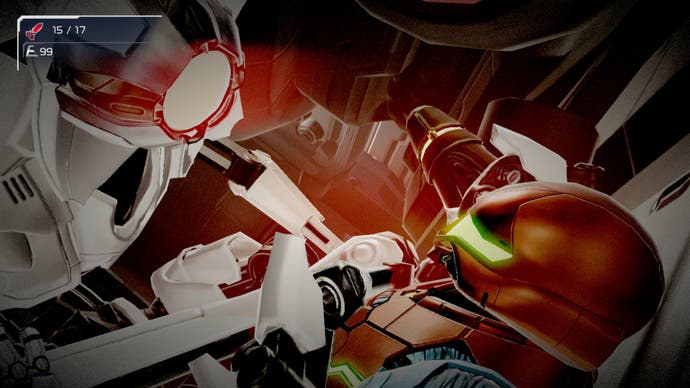
Metroid Dread's bosses are something else. The first one stopped me dead for an evening. The second one - oh gosh, the second one. I don't mean the patrolling EMMIs, who are basically just stealth puzzles. I mean the big screen-filling, ground-shaking baddies, who require those rockets you've been hoarding, and who drop another attack stage on you just when you think you're done.
At first, these bosses got to me a bit. The things I play Metroidvanias for - the delight in architectural storytelling, in exploring the way an environment fits together - seems to be missing from these moments where something huge and awful turns up and I have to find a way to do it in. (This isn't entirely true - the bosses in Dread are frequently fantastic and a lot of fun to play, but my heart does sink everso slightly when they turn up anyway because I know I'm not going anywhere for a bit.)
But then I thought: hmmm. Maybe I can use this. Each boss ends with a gift - a new gadget or power that opens up the map in an entirely different way. Each boss, in this manner, is essentially a fingerpost telling you where to go next, or at least what to be thinking about. So maybe - maybe! - the bosses are there to give you a moment to break off too. And to give you something to orient you when you return.
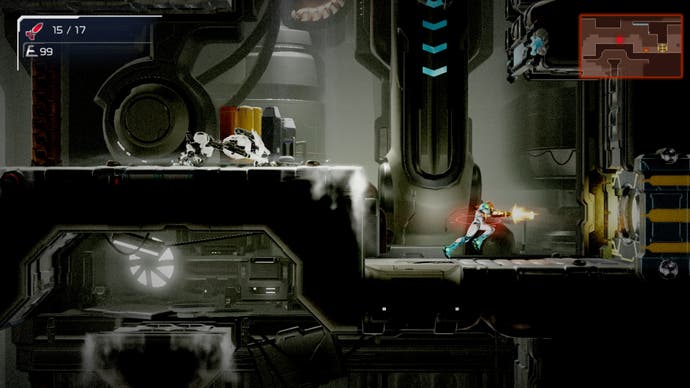
It works double duty if you ask me - the boss as a workout and refresher for the game's controls and your various powers, but also the boss as a means of directing you back into the part of the game that really matters to me.
So thank you, horrible dripping monstrosities of Metroid Dread. After years of playing Metroidvanias, I finally know what you're there for. For me, at least.
